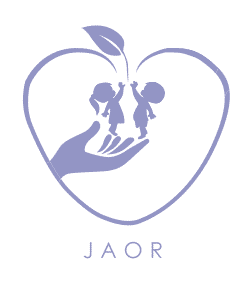Menstrual hygiene is still considered a taboo topic in many places throughout the world leaving lots of women struggling in silence with menstrual sanitation, also known as “Period Poverty”. The United Nations has recognized menstrual hygiene as a global public health and human-rights issue. It was reported that nearly 2.5 billion people lack access to sanitation mainly women.
Period poverty is the inability to access sanitary products and having a poor knowledge of menstruation often due to financial constraints.
This situation is no different here in Kenya. Despite Kenya being considered to have improved menstrual access as taxation on menstrual products was repealed in 2004 while countries like USA and European countries still tax these items as “non-essential luxury items”. However, access to quality menstrual hygiene remains a challenge particularly for low-income women.
According to United Nations Children Fund, it was noted that approximately 65% of girls residing in Kibera are forced to sleep with men who would in exchange buy them sanitary towels, while others resorted to using dirty mattress pieces.
65% of girls residing in Kibera are forced to sleep with men who would in exchange buy them sanitary towels,
Besides lowering taxation on the menstrual products, Kenyan government has been setting aside funds to distribute free sanitary towels to school-going girls since 2011. With the closure of schools due to Covid-19, it has denied them access to the highly needed essential commodity, amplifying the bleak outcome of period poverty.
This difficulty has been largely been attributed to ignorance and stigma associated with the whole subject of menstruation. It is by far the most mansplained topic to exist. If you have been living under a rock (don’t worry I got you), mansplaining is perceived to be when a man explains something (of which they have no experience ) to in a woman in ‘patronising’ manner.
A recent example involves a teenager in the UK who decided to make an uneducated statement on anti-tampon tax campaign on social media. The teen believed tampons are a “luxury item” and said if a woman “cannot hold in her period until she gets to a toilet” then it is her problem, not the taxpayers.
On the other extreme, Mr Abdullahi Bule seemed to have hit the headlines for quite the opposite reasons. Mr Bule, a bookshop owner in Nairobi’s CBD provides free sanitary towels at his store incase of an emergency need of the sanitary towel. Mr Bule was moved by an encounter he had with two girls who had were having challenges with their basic school shopping including sanitary pads.
Following the video by Tuko, which highlighted the plight of young girls in Nairobi streets on the struggle to deal with the monthly periods. They can barely afford sanitary towels let alone food. JAOR embarked on a PAD DRIVE initiative where, 50 women from low income backgrounds were provided with reusable pads. Each lady received one pack and each pack contained 6 pads which could last them for a whole year. Aside from providing them with the reusable pads, JAOR also held a seminar teaching these women on the importance of menstrual hygiene as well as how to use and maintain these reusable pads.
Period poverty is an issue not discussed enough. Women shouldn’t feel ashamed and they should be able to ask for help. Feel free to donate or volunteer for our second phase of the Pad Drive initiative and be the difference!
-Abdirahman Jama
